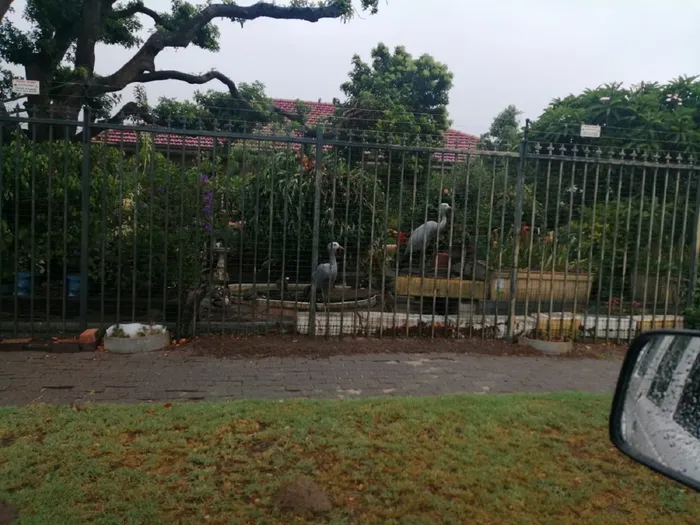Animals removed from sanctuary

The two blue cranes that were removed.
The owner of a Pinelands animal sanctuary says her entire life’s work was taken away and she doesn’t know if she has enough fight left in her to try to re-open her facility.
This after 100 animals were removed from the Wilke Wildlife Rescue and Rehab facility by officials from the SPCA and CapeNature on Monday August 15, after reported complaints about the animals’ living conditions.
Margo Wilke has run the sanctuary since the 1970s and has helped thousands of animals over the years, but she says nothing prepared her for what happened when, without warning, officials arrived at her home with a search warrant.
“I was at the hospital and got a call from a CapeNature official. I explained that I needed to see the doctor before I could come home. Driving up to my house, the road was filled with vans and officials, waiting for me.”
Ms Wilke said the warrant had allowed officials to search the entire premises and they had found her various permits, allowing her to keep and transport wild animals, had expired. Ms Wilke said she had been unable to re-apply for the permits after undergoing two knee-replacement surgeries.
Cape of Good Hope SPCA chief inspector Jaco Pieterse said they had inspected the facility along with CapeNature following several complaints about the conditions in which animals were kept.
“While the SPCA was concerned with the welfare of the animals, it was found that the centre was also operating without a valid permit from CapeNature – a legal requirement for the keeping and rehabilitating of wild animals.”
This resulted in more than 100 animals being removed from the property. Among these were two protected blue cranes, which are listed as vulnerable on the International Union for Conservation of Nature (IUCN) Red List.
Mr Pieterse said they had found severely underweight and dehydrated snakes, overcrowding, no drinking water for some animals and dirty conditions in some of the animals’ cages.
“Sadly, a peahen with only one leg and a damaged wing had to be euthanised due to her poor state. She had no quality of life and fell over when she tried to move – immobile and not able to express natural behaviour,” he said.
Ms Wilke, however, refuted these claims, saying the situation was made to look worse than it was. She said she had built relationships with many animal-rescue groups over the years and could not understand why the situation had been handled in this way and why she had not received an initial warning.
“When looking after animals, especially birds, it's impossible to keep cages clean because as soon as you clean them, they poop. This is why most sanctuaries do not have SPCA ‘approval’ when it comes to cages being kept clean. But my animals were well taken care of and well fed,” she said.
Regarding one of the snakes, in particular, Ms Wilke said: “I’ve had the snake for years, and as is the case with snakes, they eat and everything is looking fine, but then they bring it up. This can only be treated with a combination of medication and they come right, but a few months down the line, they dip again.”
CapeNature conservation officer Dumisane Jula confirmed Ms Wilke had previously had permits for captivity and to operate as a rehab centre but they had lapsed.
“Ms Wilke has a right to apply again for permits, and the application will be processed based on whether she meets the requirements of such permits,” he said.
Ms Wilke said she had loved wild animals from a young age and had been left heartbroken by the incident as she had always done her best to help them.
“My heart breaks not knowing where my animals are, if they are still alive and what will happen to them next.”
Ms Wilke, who is in her late 70s, said she did not have it in her to battle with the SPCA and CapeNature officials.
Mr Pieterse said there would be a follow-up visit to check on the remaining animals on the property, including birds, dogs and cats.
To get help for a wild animal, contact the SPCA wildlife department at 021 700 4158/9 or 083 326 1604 after hours.